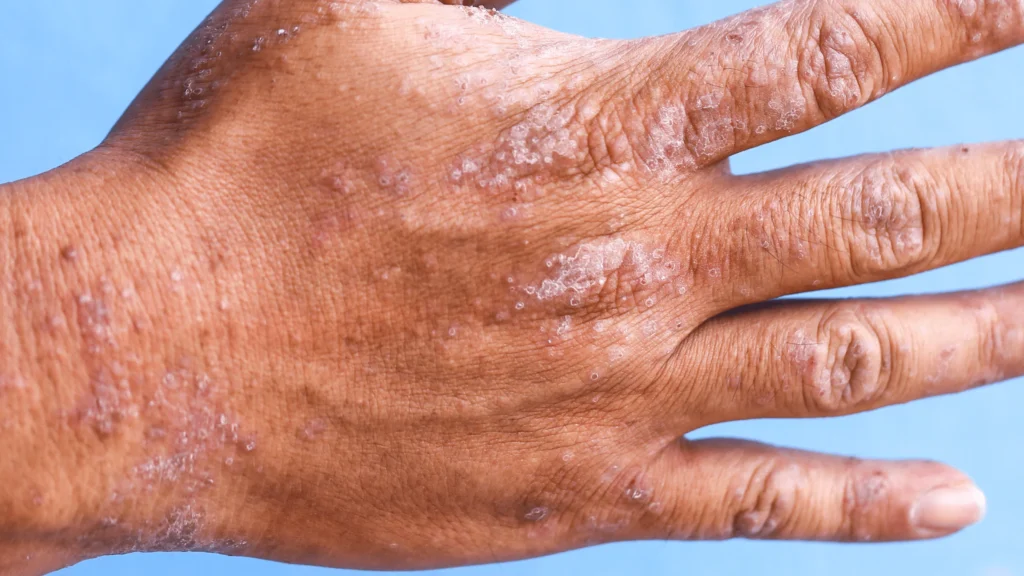What Is Eczema?
Eczema, medically known as atopic dermatitis, is a chronic inflammatory skin condition characterized by dry, itchy, and inflamed skin. It affects individuals of all ages but is particularly common in children. While not contagious, eczema can significantly impact the quality of life due to its persistent symptoms.

Types of Eczema
Eczema encompasses several distinct types, each presenting unique characteristics:
- Atopic Dermatitis: The most prevalent form, often associated with other atopic conditions like asthma and hay fever.
- Contact Dermatitis: Occurs when the skin reacts to direct contact with allergens or irritants, leading to localized inflammation.
- Dyshidrotic Eczema: Characterized by small, itchy blisters on the hands and feet.
- Nummular Eczema: Presents as circular, itchy patches on the skin.
- Seborrheic Dermatitis: Affects areas rich in oil glands, such as the scalp and face, causing scaly patches.
- Stasis Dermatitis: Develops in the lower legs due to poor circulation, leading to swelling and skin changes.
Symptoms
Common symptoms include:
- Itching: Often intense and worsening at night.
- Dryness: Skin appears dry, scaly, or flaky.
- Redness and Inflammation: Affected areas may become red and swollen.
- Blisters: In some types, small fluid-filled blisters may form.
- Thickened Skin: Chronic scratching can lead to lichenification, where the skin becomes thick and leathery.
Symptoms can vary based on the type of eczema and individual factors.
Causes and Risk Factors
The exact cause of eczema remains unclear, but it is believed to result from a combination of genetic and environmental factors:
- Genetic Predisposition: A family history of eczema, asthma, or hay fever increases the likelihood of developing the condition.
- Immune System Dysfunction: An overactive immune response can lead to skin inflammation.
- Environmental Triggers: Factors such as allergens, irritants, stress, and climate can exacerbate symptoms.
Diagnosis
Diagnosis primarily involves a thorough medical history and physical examination. In some cases, additional tests like skin biopsies or allergy testing may be conducted to identify specific triggers or rule out other conditions.
Management and Treatment
Effective management focuses on alleviating symptoms and preventing flare-ups:
- Moisturizing: Regular application of emollients to maintain skin hydration.
- Topical Corticosteroids: Reduce inflammation during flare-ups.
- Calcineurin Inhibitors: Non-steroidal creams that modulate immune responses.
- Antihistamines: Help control itching, especially when it disrupts sleep.
- Phototherapy: Controlled exposure to ultraviolet light under medical supervision.
- Systemic Medications: For severe cases, oral or injectable medications may be prescribed.
Identifying and avoiding personal triggers, such as certain soaps, fabrics, or stressors, is crucial in managing eczema effectively.
Living with Eczema
Living with eczema requires a proactive approach:
- Skin Care Routine: Use gentle, fragrance-free products and avoid hot showers.
- Clothing Choices: Opt for soft, breathable fabrics like cotton.
- Stress Management: Incorporate relaxation techniques such as meditation or yoga.
- Dietary Considerations: While not a direct cause, some individuals find that certain foods can trigger symptoms.
Collaborating with healthcare providers to develop a personalized management plan can significantly improve outcomes.